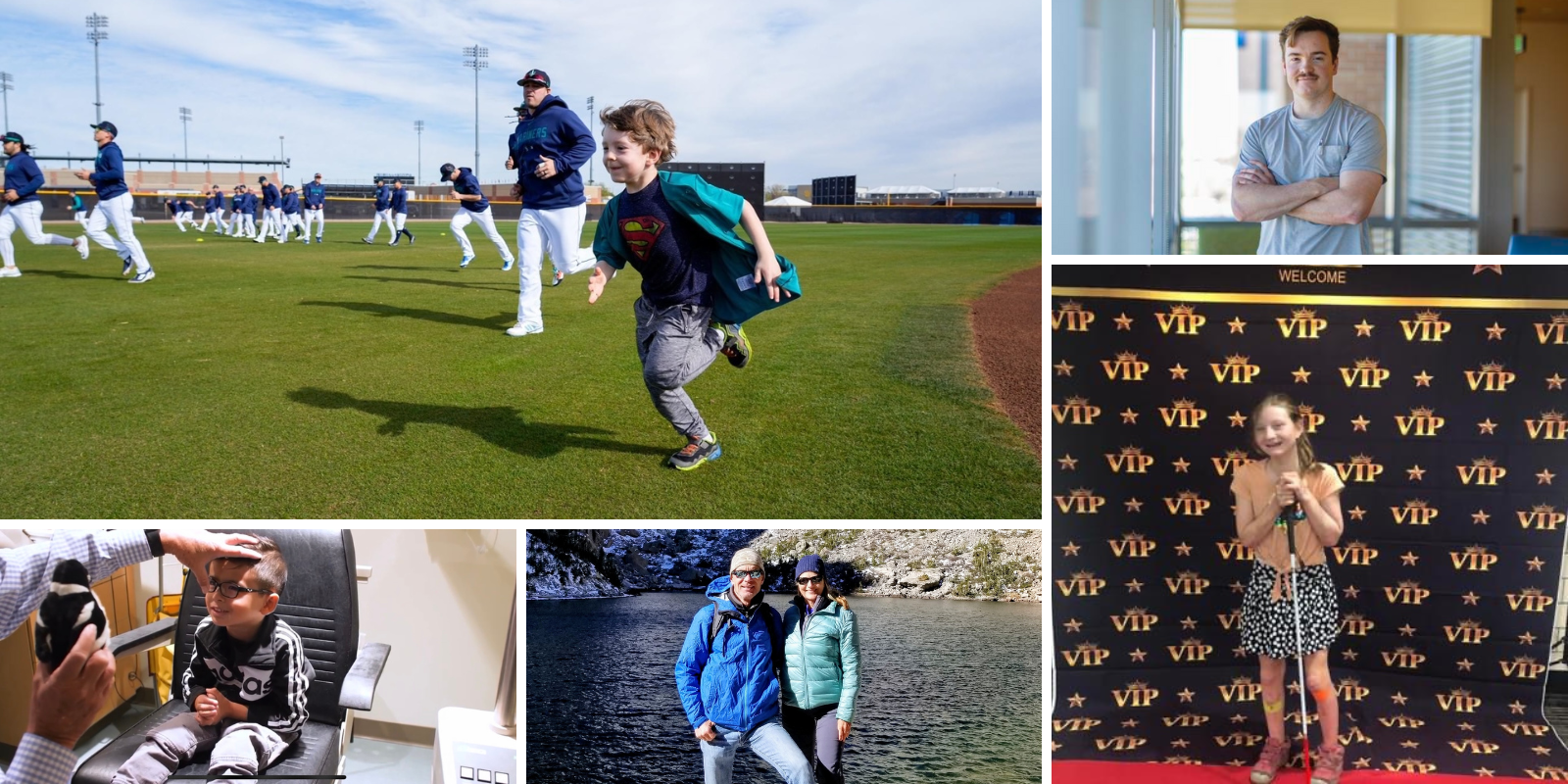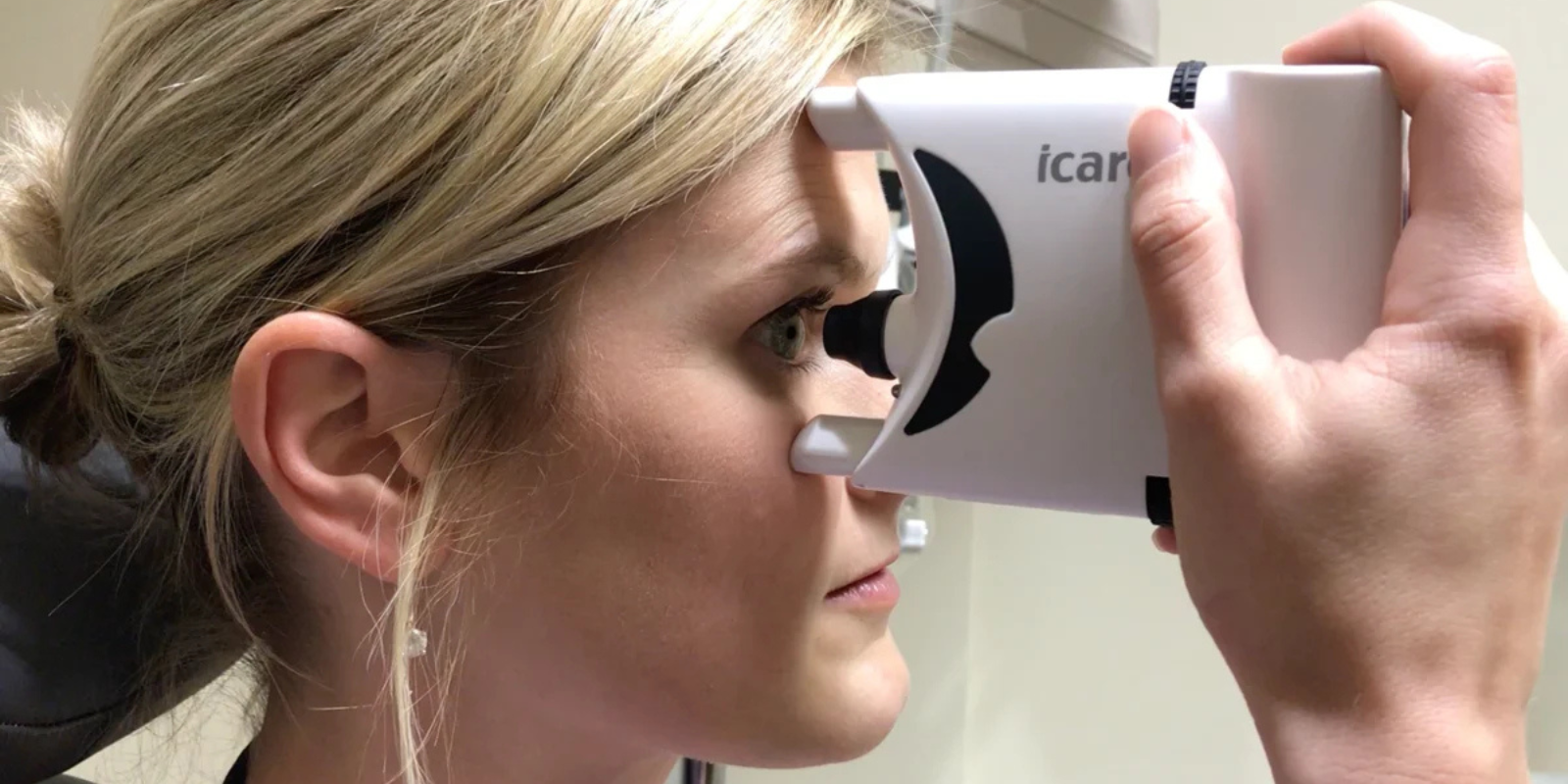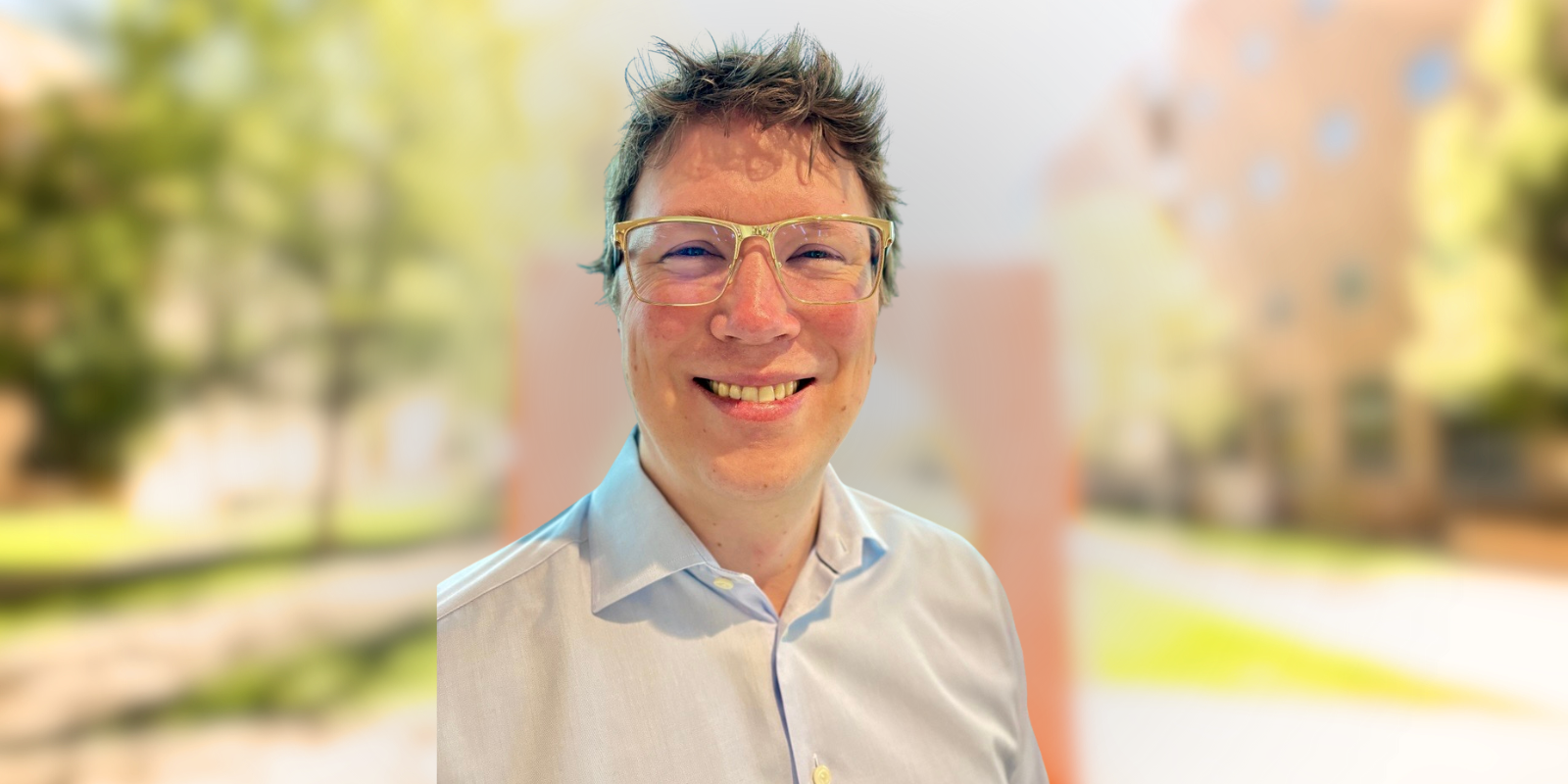Each day at the Sue Anschutz-Rodgers Eye Center is filled with opportunity and a vision for each’s patient’s future.
For some, it’s managing an uncurable ocular disease to prevent as much vision loss as possible. For others, it’s creating a novel drug to treat a rare genetic condition.
Research, dedication to patient care, and top-notch education enable these possibilities.
Below, faculty members of the Department of Ophthalmology at the University of Colorado School of Medicine share a few of their special accomplishments with patients from the last few years.
For more stories on faculty research, expertise, and trainee education, visit the department newsroom.

Emily McCourt, MD, associate professor of ophthalmology, poses for a photo with pediatric patient Grace Hoyt, who has a rare genetic condition that affects her vision. Photo courtesy of the Hoyt family.
CU Ophthalmologists Administer Novel Treatment for Single Patient Facing Rare Genetic Condition
Grace Hoyt, who has a rare genetic condition that affects her vision and nervous system, received a treatment specifically designed for her with the help of CU ophthalmologists.
“It’s so incredible that she has this opportunity,” her mother said following the administration of the treatment. “We’ve known that Grace is going to go blind, but to have the chance to stop the inexorable march forward is encouraging.”
‘Maybe We Can Have an Impact’: Philanthropic Gift Focuses on the Future of Inherited Retinal Disease Research
Jim Reichert and his wife Anita were inspired to donate a portion of their estate to CU ophthalmology researchers after receiving care from Marc Mathias, MD, associate professor of ophthalmology, for Jim’s retinitis pigmentosa (RP) diagnosis.
The inherited retinal disease slowly leads to irreversible vision loss and has no cure.
“This gift comes full circle for me,” Jim said of the couple’s commitment. “Inherited retinal diseases don’t get as much attention as some other areas in health research and there are so many variations, so it’s needed, and we have the means. Maybe we can have an impact.”

Coleman Tawresey, who was treated by Scott Oliver, MD, for retinoblastoma, got to live out a dream of hanging out with the Seattle Mariners as part of his Make-a-Wish celebration. Photo courtesy of the Seattle Mariners.
From Beating Retinoblastoma to Batting with Big Leaguers
When Coleman Tawresey was two years old, he was diagnosed with retinoblastoma, an eye cancer that primarily affects young children. After several rounds of chemotherapy, including intra-arterial chemotherapy, he was able to celebrate remission by running the bases and hanging out with his favorite baseball team, the Seattle Mariners.
Scott Oliver, MD, associate professor of ophthalmology, said Coleman’s experience with treatment was one of perseverance and a reminder to parents that if something doesn’t seem right with their child’s eyes, seek a professional opinion.
Stevens-Johnson Syndrome Survivor Set to Attend CU School of Medicine After Receiving Pioneering Treatment
Darren Gregory, MD, associate professor of ophthalmology, performed a vision-saving treatment on Will Osier when Osier was 8 years old. More than a decade later, Osier planned to make his own foray into medicine.
“I'm just glad I showed up when I did. Dr. Gregory saved my vision and allowed me to have an outcome that I couldn’t have had otherwise,” Osier said of the care he received as a child.

A patient receives an eye exam at the Anchor Center for Blind Children in Denver. Photo courtesy of the Anchor Center.
CU Ophthalmologists Bring Ocular Health Expertise to Denver’s Anchor Center for Blind and Visually Impaired Children
CU ophthalmologists Emily McCourt, MD, and Lauren Mehner, MD, MPH, assistant professor of ophthalmology, have helped craft a unique experience for visually impaired and blind children at Denver’s Anchor Center for Blind Children. They spend one day per month at the center to tend to pediatric patients in an environment that’s familiar, convenient, and comfortable.
“These are patients who need us the most,” Mehner said of their efforts. “They also have access to important services, which make this experience even more special.”

.png)

